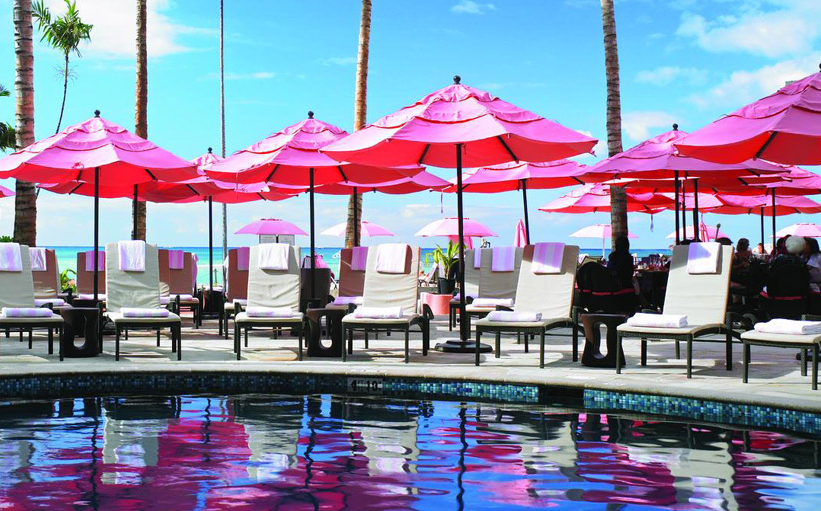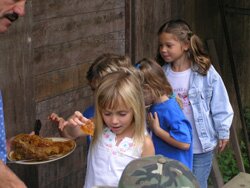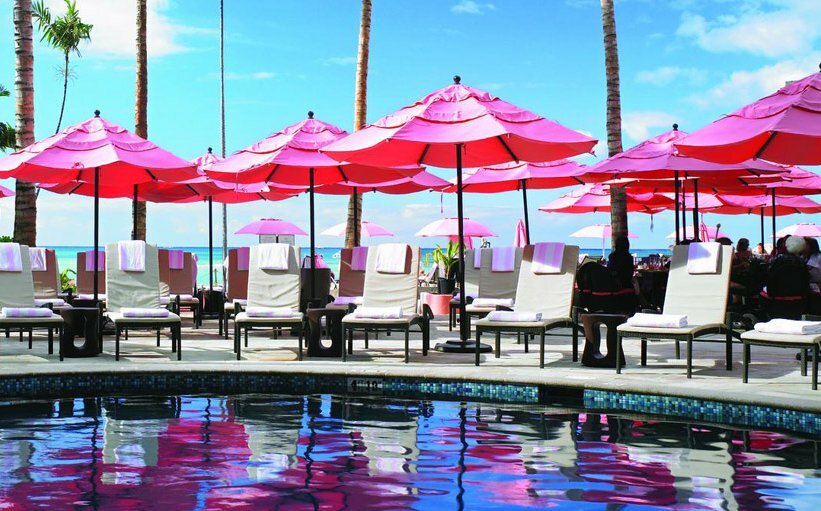
A few weeks ago, Starwood Hotels & Resorts Hawaii invited us down to lunch at Tom Douglas’s Palace Kitchen to chew the poi, metaphorically. (It wasn’t on our lunch menu, but you can imagine how excited I was to see the Kitchen serves “troll-caught Neah Bay king salmon,” until someone explained to me the relevant fishing terminology.)
I was there despite never having visited Hawaii–or rather, because I have never visited Hawaii, and was curious if I was missing something. I have nothing against Hawaii, and Facebook tells me that many of my friends really enjoy the place, but it just seems odd to fly out to the middle of the ocean and try to land on a volcano. Clearly, you’re tempting fate. Besides, I am not a surfer, though I appreciate their work.
But Hawaii has not been content to leave it at that. There was that The Descendants movie. The Hawaii 5-0 reboot. Hawaii is back. So, all right, I went down and took notes. First, yes, the film is that popular, and people really are arriving in Hawaii wanting to recreate The Descendants shoot. The complications of the plot–questions of family, legacy, ecology–are not unrelated to Starwood Hawaii’s marketing strategy, it would turn out. Less so, Hawaii 5-0, though I would think that catching sight of Grace Park in a bikini is a tourism industry no-brainer.
I don’t know if they were putting me on, but the message was that Hawaii, like many baby-boomers, is starting to wonder what’s truly important, what is enduring and what won’t last. What’s worth passing on to new generations. (It is true that the Starwood team were the nicest people, and that’s saying something because, you know, Seattle. We know nice. I didn’t even mind the lei.) Now, I am sure that if you want to spend a great deal of money in pampered luxury, never moving more than arm’s-length from your beach daiquiri, Hawaii still has you covered. How about an 1,800-square-foot suite with butler service? That’s the St. Regis Princeville Resort.
But Starwood, I learned, has spent hundreds of millions of dollars in renovations of its eleven properties on the islands, partly to keep up with the luxe vacation arms race (there’s a Sheraton app for that), but also to make its properties more appealing to families with tweens and teens (the Broadway-style musical Honu by the Sea, starring a sea turtle, just opened at the Royal Hawaiian) and to people for whom travel means adventures; immersion, not escape; and who are concerned about leaving footprints. There are also ukelele lessons; I’m not sure which category that falls into.
 Besides the infinity pools, waterslides, and snorkeling-with-dolphins, there are heritage and cultural tours that help to develop a sense of place, whether you’re visiting lava flows or tropical forests or sailing in a Hawaiian canoe.
Besides the infinity pools, waterslides, and snorkeling-with-dolphins, there are heritage and cultural tours that help to develop a sense of place, whether you’re visiting lava flows or tropical forests or sailing in a Hawaiian canoe.
A leading way to commune with the locals anywhere is through food. Hawaii is home to coffee and vanilla companies, of course. Kona Brewing has been around since 1995, Maui Brewing since 2005 (try the coconut porter). How about a Hawaiian vodka? Hawaii’s beekeepers keep a list of honey pots you can try to get your paw into. The Volcano Island Honey Co. is recommended by people in the know; they do farm tours as well.
If you’re staying at an ocean villa, you might want to drop in at a farmers market or two, or three, but Starwood also has a farm-to-table program at their property restaurants.
The Kapalua Wine & Food Festival was in June on Maui. This fall, September 6 through 9, 2012, Oahu is home to the Hawaii Food & Wine Festival, co-founded by two James Beard Award-winning chefs, Roy Yamaguchi and Alan Wong. (I’m told that the low season in Hawaii is the weekend after Thanksgiving, and just before and after Christmas.)
In Hawaii, the question of sustainability isn’t abstract–any island confronts resource use differently, with more urgency, than sprawling continents. Having a continental breakfast delivered to your door could well mean having the food shipped out from the continent, depending on what can be sourced locally. Starwood, which hopes to have all of its properties LEED-certified within the next two years, has a “sustainability champion” at each property.
